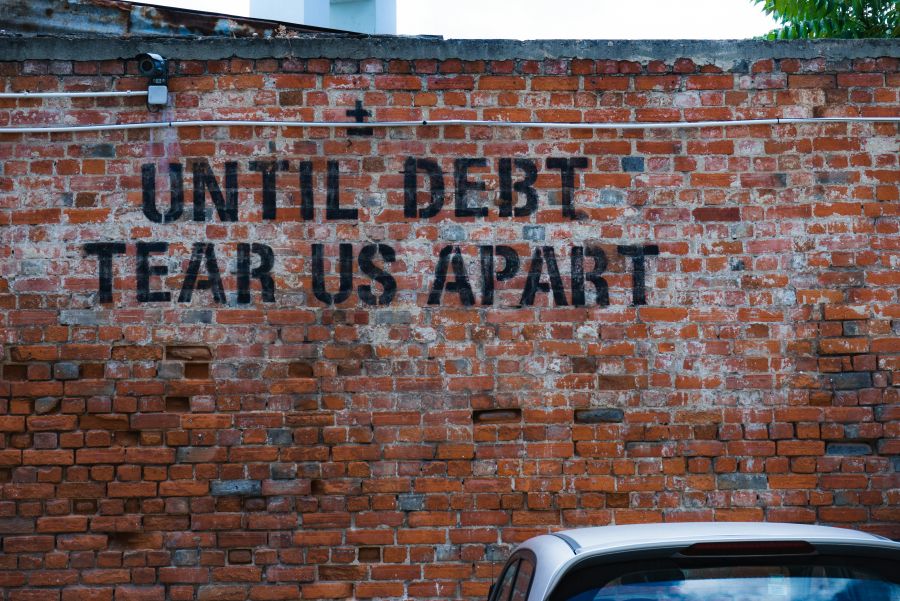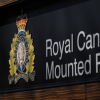Of all the head-shaking revelations about how broke British Columbians are, this is the most shocking.
Nearly 2.2 million British Columbians say they are wobbling on the precipice of insolvency.
Insolvency, in this case, is defined as not being able to meet monthly debt repayment obligations when they are due.
Insolvency can be just one step away from bankruptcy, which is the legal process a debtor enters to seek relief from creditors and severely impacts your credit store and ability to get credit in the future.
In fact, 55% of British Columbians feel that if interest rates go much higher, it could push them toward bankruptcy.
Considering that the entire population of BC is 5.7 million, the 2.2 million with their backs to the proverbial financial wall is startling.
2.2 million of 5.7 million is 39% -- a troubling percentage of British Columbians who are in financial distress.
.jpg)
These figures come out of the latest Consumer Debt Index, which is compiled quarterly by pollster Ipsos for accounting and consulting firm MNP.
Almost half -- 48% -- expect they will go into even more debt over the next year to cover living expenses.
"Despite two interest rate pauses, the financial pressure hasn't let up," said Linda Paul, a licensed insolvency trustee with MNP based in Vancouver.
"With the high cost of living (unaffordable housing, hefty utilities, high transportation and food costs and crushing taxes and insurances) continuing to squeeze budgets, many are treading carefully, but it still feels like they're falling behind or constantly putting out financial fires."
Treading carefully and putting out financial fires includes 37% of British Columbians feeling anxious and stressed about finances, 33% living paycheque to paycheque, 36% have all but eliminated discretionary spending and 25% are putting important life goals (like buying a home, starting a family or changing careers) in order to pay down debt.
In such a scenario, it's not surprising that 52% of British Columbians regret the amount of debt they've racked up.
.jpg)
"British Columbians are facing a unique convergence of financial pressures, compounded by broader economic uncertainty and global volatility," said Paul.
"With high housing costs and inflation running above average, the strain is especially pronounced for many in the province. After a series of interest rate cuts, the recent pauses may be causing some anxiety."

Paul said if you're behind on bill and debt payments, receiving collection calls, having sleepless nights or simply unsure of what to do next, you can always call a licensed insolvency trustee for help.
"We're here to walk you through all of your options and offer non-judgmental advice tailored to your unique situation," she said.
"You're not alone. Many British Columbians are feeling overwhelmed right now. Even taking that first step to understand your options can be a huge relief. Getting advice early often makes the path forward much clearer and easier to manage."

A separate survey by Harris & Partners, a licensed insolvency trustee firm that has offices across the country, also contains some depressing statistics.
Such as, 57.3% of Canadians said their current income isn't enough to cover essentials like housing, food and bills and as a result they lean on debt to help them get through.
"These numbers are deeply concerning," said Harris & Partners CEO Joshua Harris.
"More than half of Canadians feel they're falling behind financially, not because of bad choice, but because their income simply isn't keeping up with the cost of living. We're not talking about luxuries here, we're talking about the basics. When working people can't afford food, rent or electricity on their current income, it's clear something needs to change."
Harris calls for a structural change so people can make adequate wages.
It's not all doom and gloom.
According to the MNP survey, 33% of British Columbians consider their debt situation to be excellent -- as in they have little or no debt and what debt they have is being easily paid off.
28% expect their debt burden to improve over the next year and 36% believe it will ease over the next five years.
Thumbnail photo by Vitaly Gariev on Unsplash








.jpg)
.jpg)










